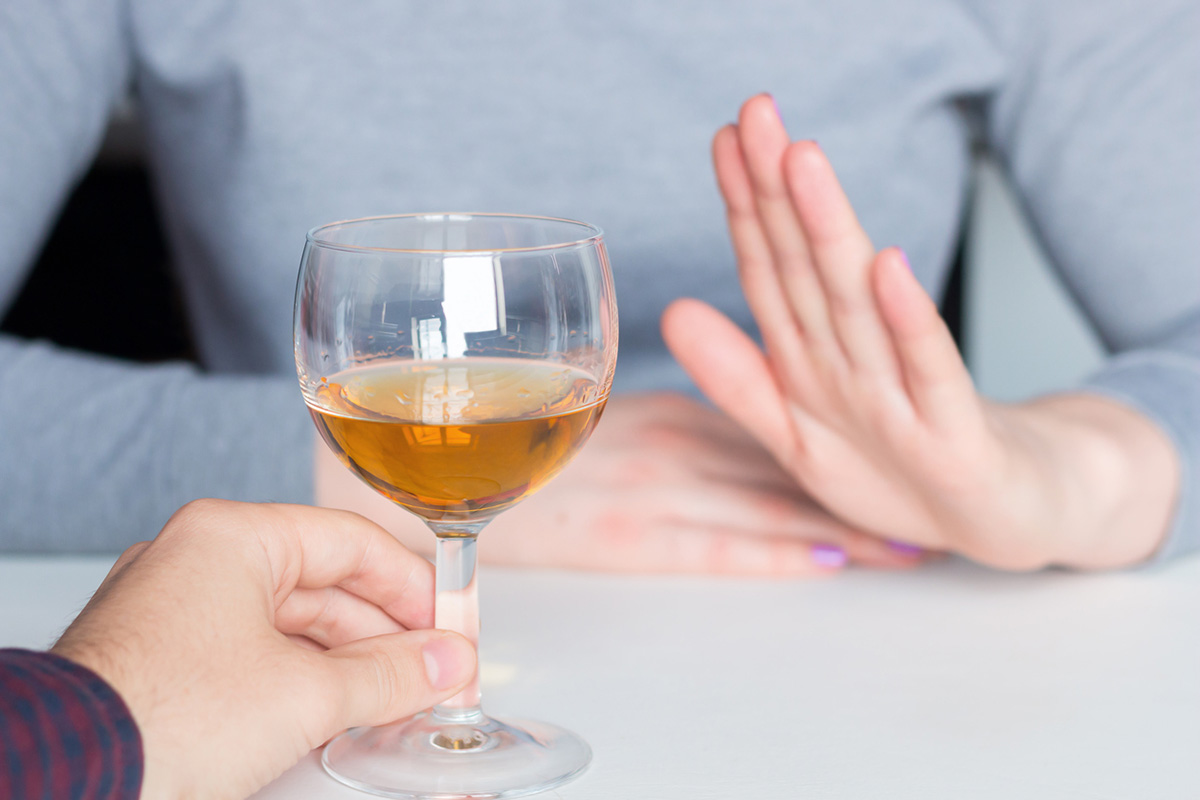
Popular Locations
- NEMG Internal Medicine - New Haven
- NEMG Internal Medicine - Orange
- NEMG Internal Medicine - Trumbull

Published March 06, 2023

Experts agree that alcohol consumption is on the rise as people increasingly turn to drink to relax and de-stress. Given the potential dangers associated with drinking too much, Aleksandra Rosinski, MD, a primary care physician with Northeast Medical Group in New Haven, urges caution when using alcohol to unwind.
“We look at alcohol consumption in two ways, how much someone is drinking on a week-to-week basis and how much they are drinking on an event basis,” Dr. Rosinski said. “Women shouldn’t be having more than seven drinks a week, and men shouldn’t be having more than 14 drinks a week. That is combined with the recommendation that you don’t have more than four drinks at a time for women or five drinks at a time for men.”
When it comes to episodic, or event-based drinking, if you’re consuming four or five drinks at time, five times a month, that is considered binge drinking, which Dr. Rosinski said can be dangerous.,
“People can run into serious health problems once they cross those thresholds for weekly or event-based drinking,” she said. “Common alcohol-related problems include liver cirrhosis, scaring of the liver. Drinking too much can also lead to social, legal or dangerous safety problems, especially if you choose to drink and drive.”
There was a time when alarm bells would ring only for people who drank every day or drank hard liquor, but Dr. Rosinski said that is no longer the case. “Alcohol is alcohol, whether you get it from vodka, beer or hard seltzer,” she said.
She advises people to keep track of how much they’re drinking and compare that to the recommended weekly and event-based limits. She said keeping a journal or written record of your alcohol consumption is a great way to put your drinking into perspective.
“You can also sit down and do an honest assessment of your desire for a drink,” she added. “Is most of your time spent thinking about how much you want more alcohol, or how you’re going to get your next drink? If so, I would want you to speak with your doctor.”
Dr. Rosinski strongly encourages anyone who regularly exceeds the consumption thresholds to seek medical help. She said that, despite some success stories, quitting “cold turkey” is dangerous.
“Alcohol detox is one of the few detoxes where the patient can die,” she said. “That is why many alcohol programs take place in a hospital or other monitored setting. Signs that you or someone you know might require this level of care include seizures or confusion when trying to quit.”
Behavioral health shouldn’t be overlooked when it comes to drinking. “People really are turning to alcohol because they’re depressed or anxious,” Dr. Rosinski added. “In those cases it can be beneficial to try alternatives like therapy, exercise or meditation, all of which can treat the underlying problem.”
If you think you may be drinking too much and would like to speak with a doctor, visit NortheastMedicalGroup.org and make an appointment.
Note: The terms “women and “men” are used in this article to reflect biological sex. Your gender identity may not align with the signs, symptoms and risk factors of alcohol consumption. Your healthcare provider can better help you understand how your specific circumstances will translate into diagnosis, symptoms and treatment.